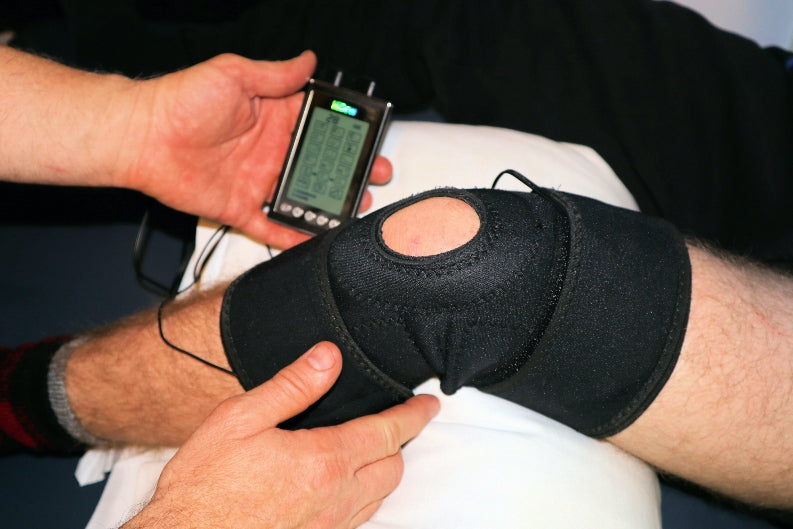If you are suffering from a frozen shoulder, you might be looking for ways to ease the pain. A frozen shoulder diet can help improve your symptoms and make your life a little easier. This blog post will discuss some of the best foods to eat when you have frozen shoulder!
Diet for Frozen Shoulder
If you are looking for a frozen shoulder diet, there are a few things to consider. First, frozen shoulder is a condition caused by different things, so your diet will need to be tailored to your specific case. Second, frozen shoulder can be a chronic condition, so you'll need to make sure that your diet is sustainable in the long term.
Here are a few general tips for a frozen shoulder diet:
Protein
Make sure you're getting enough protein. Protein is essential for tissue healing, so you'll need to ensure you're getting enough of it if you want to recover from a frozen shoulder.

Anti-Inflammatory Foods
Eat anti-inflammatory foods like tomatoes, olive oil, and green leafy vegetables, such as spinach, kale, and collards. Inflammation is a significant factor in frozen shoulder, so you'll need to eat foods that help reduce it. Also, make sure to avoid processed and sugary foods. These can contribute to inflammation, so you'll want to avoid them.
Water
You should drink plenty of water. Water helps flush toxins from your body and keeps your tissues healthy. It is also essential to stay hydrated so your body can function to the best of its ability and ensure fast healing.

Rest
People underestimate the importance of rest in the healing process. Rest is directly co-related to tissue healing, so if you're getting enough sleep at night, you're giving your body a chance to heal itself and speed up the process of recovery.
Turmeric for Frozen Shoulder
Turmeric is an anti-inflammatory powerhouse and can help treat frozen shoulder. You can take it in capsule form or make a tincture. For the mixture, mix one teaspoon of turmeric with one cup of water and drink three times per day. To make a compress, mix one teaspoon of turmeric with two cups of water and apply to the affected area. You can also find turmeric creams at health food stores. Check with your doctor before taking turmeric if you are on blood thinners or have an inflammatory condition. Do not take turmeric if you are pregnant or breastfeeding.
Turmeric is just one natural remedy for frozen shoulder. Other options include acupuncture, massage, stretching and most importantly keeping your shoulder as comfortable as possible. It is also essential to be mindful of the clothes you wear during your frozen shoulder healing process as adaptive wear; in particular post surgery clothing is designed to be comfortable and offer compression that aids tissue healing. You can check out Reboundwear's shoulder surgery shirts equipped with zippers to make dressing with your frozen shoulder a quick and comfortable process!
Best Supplements for Frozen Shoulder
If you are looking for the best supplements to help with your frozen shoulder, look no further. Here are some of our top recommendations:
Vitamin C
Vitamin C is a powerful antioxidant that can help reduce inflammation and promote healing. It is also essential for collagen production, necessary for healthy connective tissue.
Omega-fatty acids
Omega-fatty acids are anti-inflammatory and can help reduce pain and stiffness in the joints. They are also crucial for maintaining joint health.
Turmeric
Turmeric is a potent anti-inflammatory herb that is effective in treating frozen shoulder. It can help reduce pain and improve the range of motion.

Bromelain
Bromelain is an enzyme that helps reduce inflammation and pain. It is also believed to promote healing.
Arnica
Arnica is a natural remedy that is effective in treating frozen shoulder. It can help reduce pain, swelling, and stiffness.
Home Remedies for Frozen Shoulder
Many home remedies can help reduce the pain and stiffness of a frozen shoulder. Some of these home remedies include:
- Applying heat to the affected area. This can be done using a heating pad, warm towel, or hot water bottle.
- Taking a warm bath or shower.
- Gently stretching and massaging the affected shoulder.
- Using over-the-counter pain medications, such as ibuprofen or acetaminophen.
- Wearing shoulder surgery shirts can also be beneficial as these shirts are easy-to-wear with zippers, so they don't put pressure on your frozen shoulder.
If home remedies do not provide relief, your doctor may recommend physical therapy or steroid injections. Surgery is only rarely needed to treat frozen shoulder. With proper treatment, most people can recover from frozen shoulder within a year.
Conclusion
Frozen shoulder, also known as adhesive capsulitis, is a condition that can cause significant pain and limited range of motion in the shoulder joint. If you are suffering from frozen shoulder, there are some dietary and lifestyle changes you can make to help improve healing and recovery. The frozen shoulder diet we’ve outlined should help get you started on the path to relief. Have you tried any of these tips? Let us know how they worked for you!







Leave a comment
All comments are moderated before being published.
This site is protected by hCaptcha and the hCaptcha Privacy Policy and Terms of Service apply.